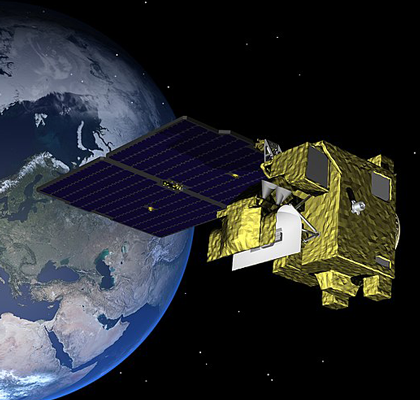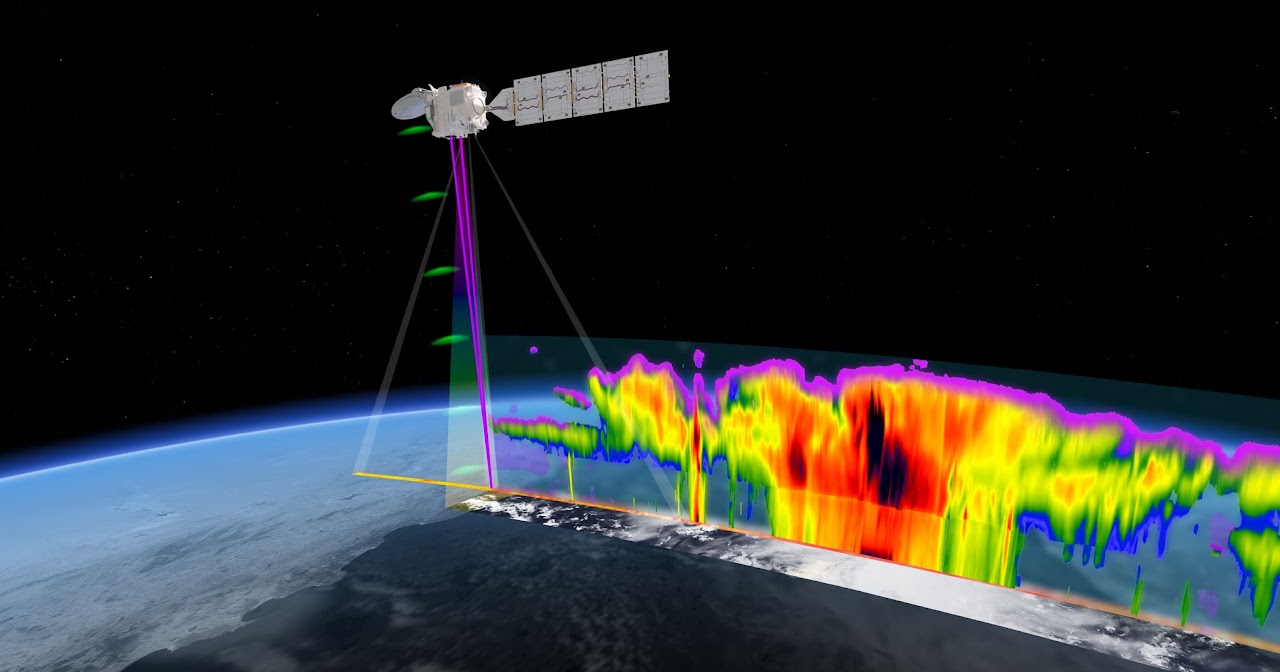
EarthCARE UK Science Meeting
Meeting Info

As EarthCARE completes its first year in orbit, a meeting was held on 6th June to gather the community of UK scientists interested in EarthCARE’s suite of observations across the domains of aerosol, cloud, precipitation, radiation budget, and applications to weather and climate modelling.
Aimed at both current and prospective users, the objective of the meeting was to identify areas of common scientific interest and facilitate coordinated research, particularly seeding consortia for funding applications.
The meeting was supported by the National Centre for Earth Observation, the University of Reading, and the European Centre for Medium-Range Weather Forecasts.
Presentations from the meeting can be found below:
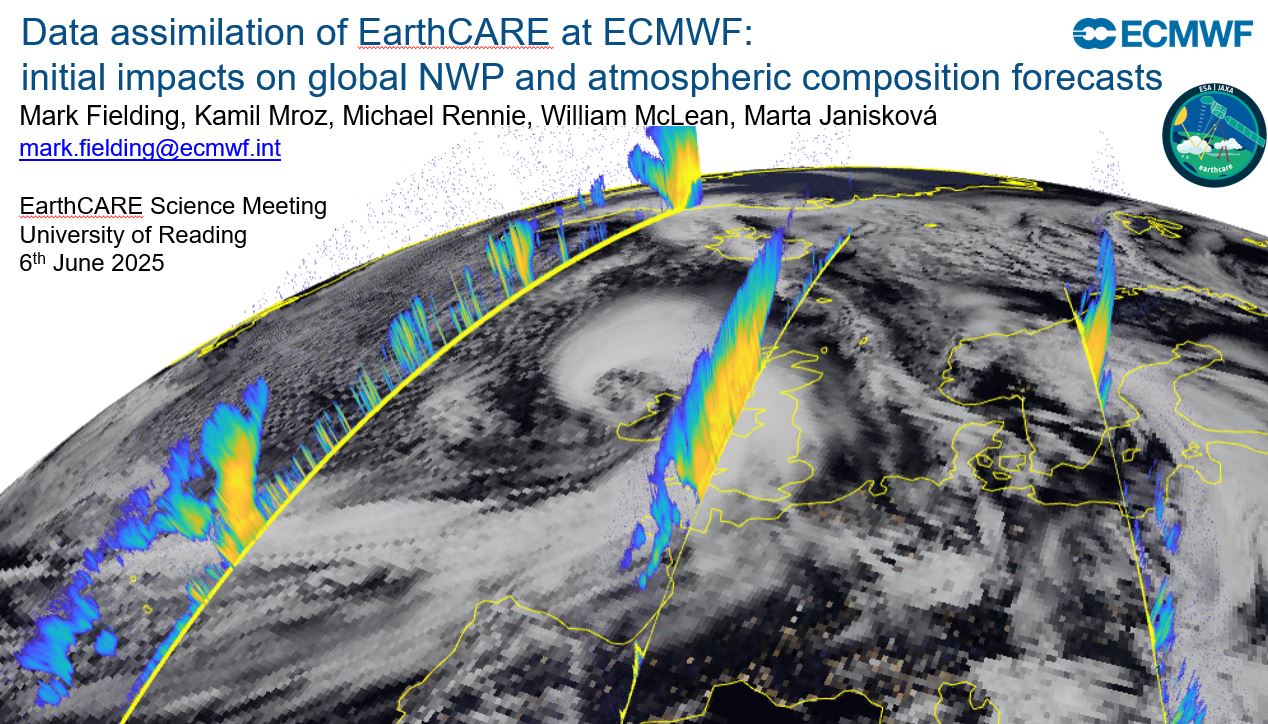
Mark Fielding
Data assimilation of EarthCARE at ECMWF:
Initial impacts on global NWP and atmospheric composition forecasts
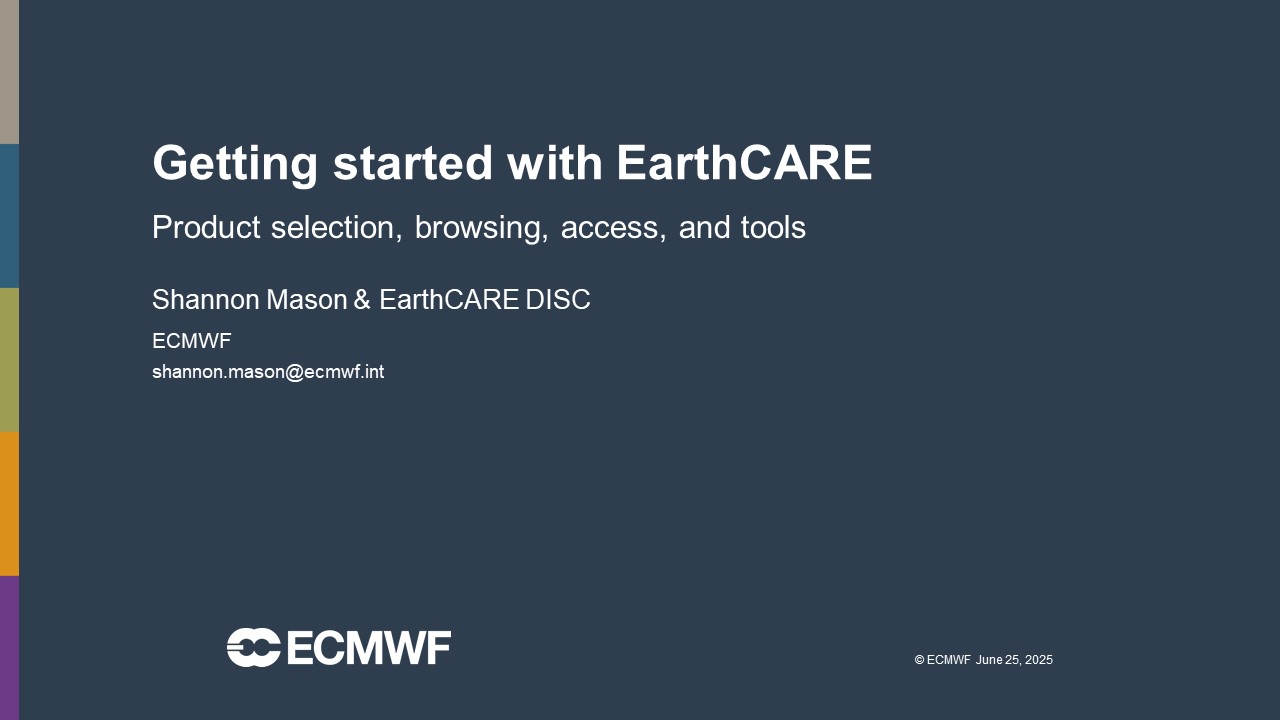
Shannon Mason
Getting started with EarthCARE
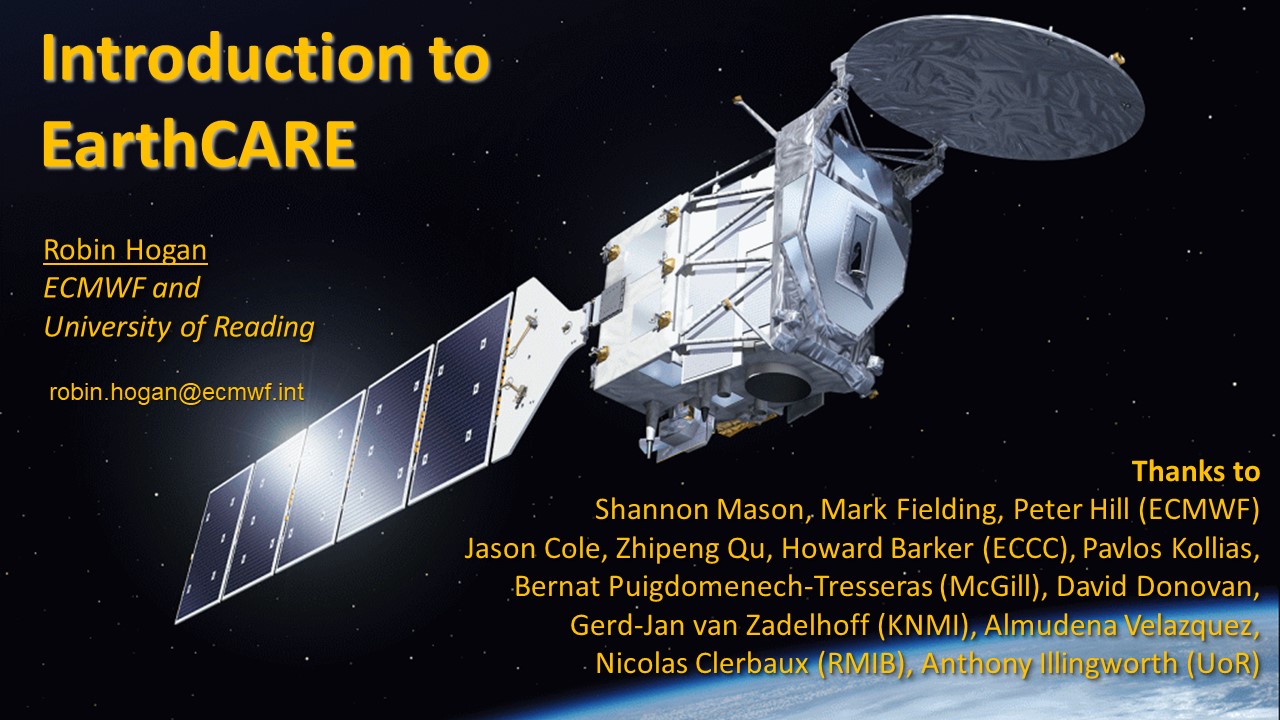
Robin Hogan
Introduction to EarthCARE
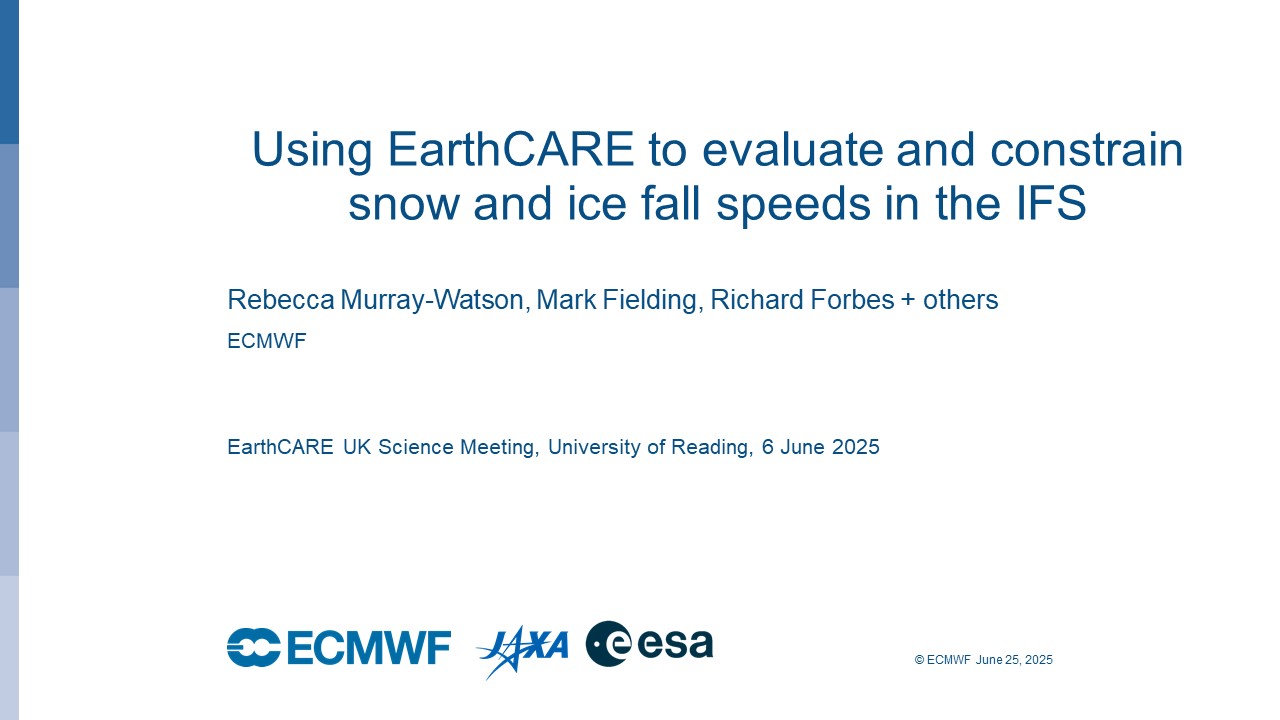
Richard Forbes
Using EarthCARE to evaluate and constrain snow and ice fall speeds in the IFS
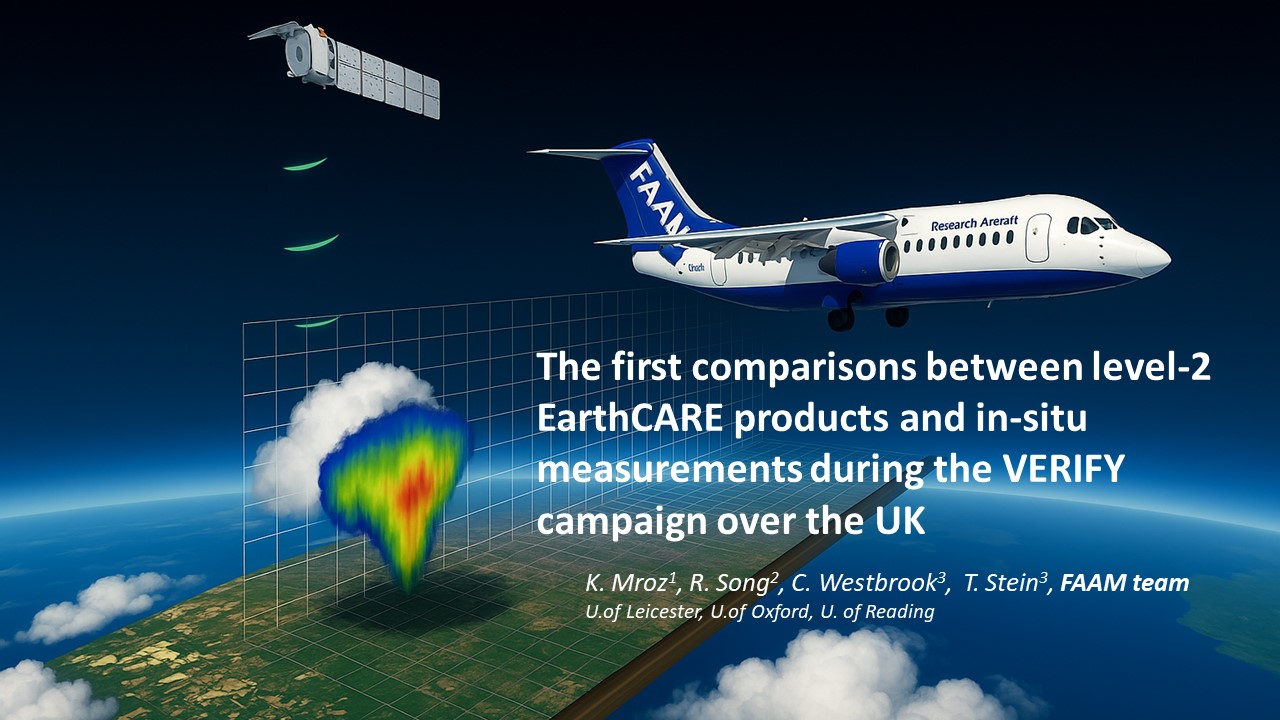
Kamil Mroz
The first comparisons between level 2 EarthCARE products and in-situ measurments during the VERIFY campaign over the UK
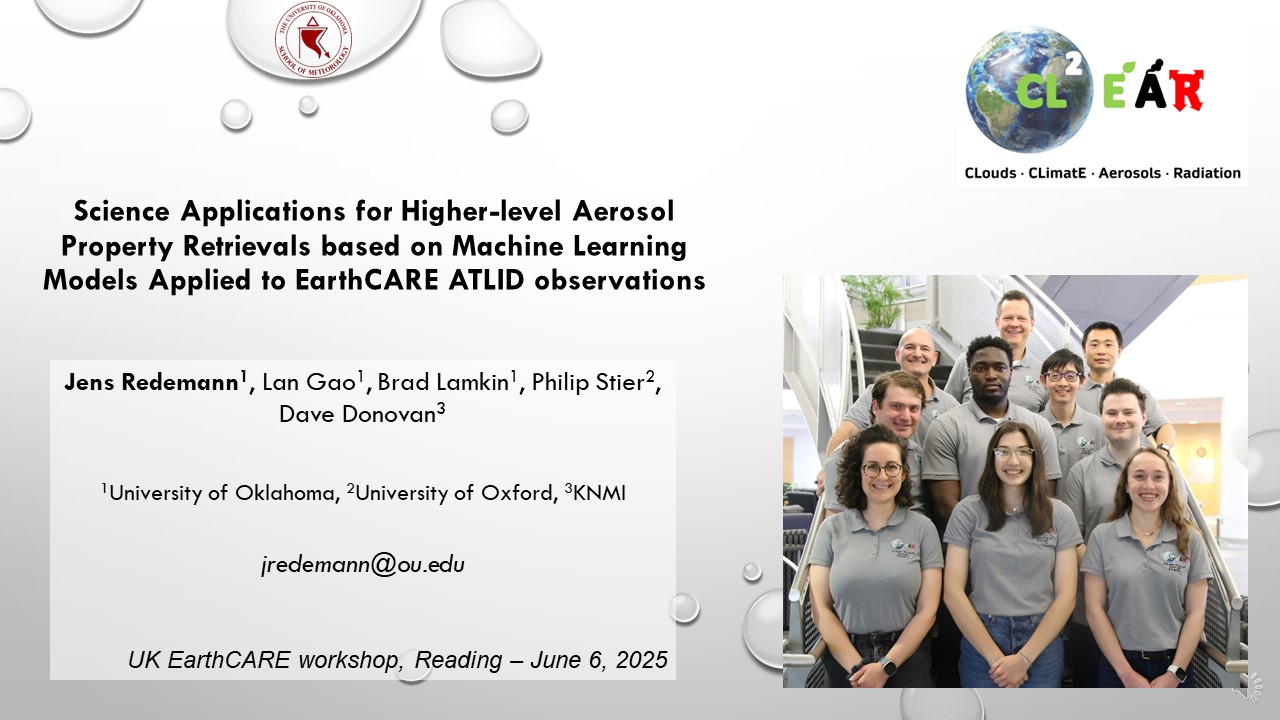
Jens Redemann
Science Applications for higher-level aerosal property retrievals based on machine learning models applied tp EarthCARE ATLID obervations
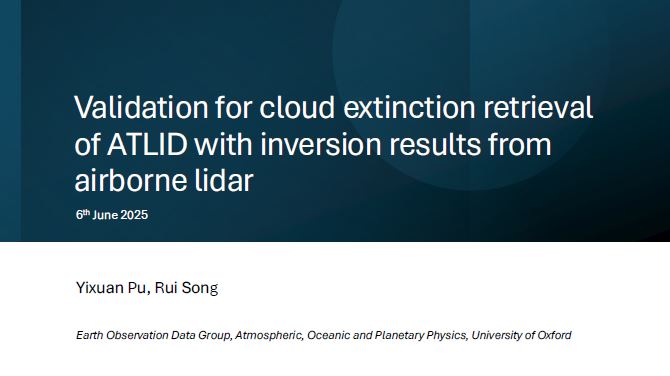
Yixuan Pu
Validation for cloud extinction retrieval of ATLID with inversion results from airborne lidar
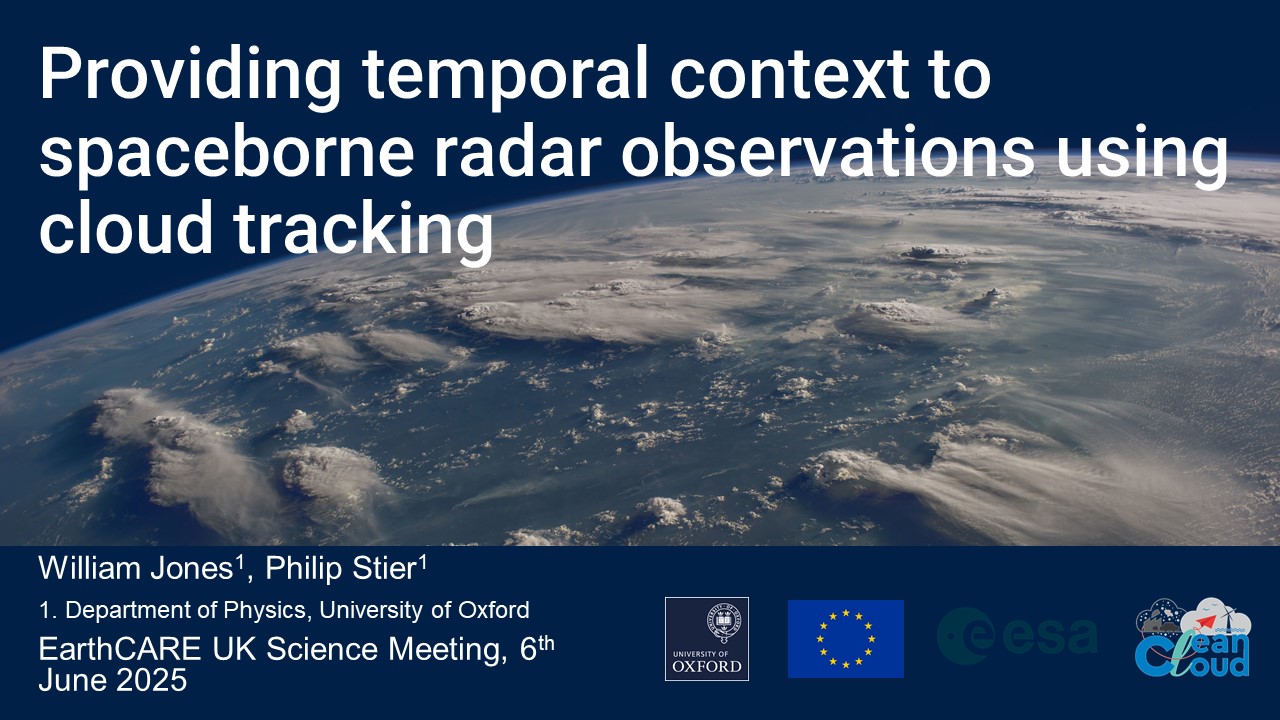
William Jones
Providing temporal context to spaceborne radar observations using cloud tracking
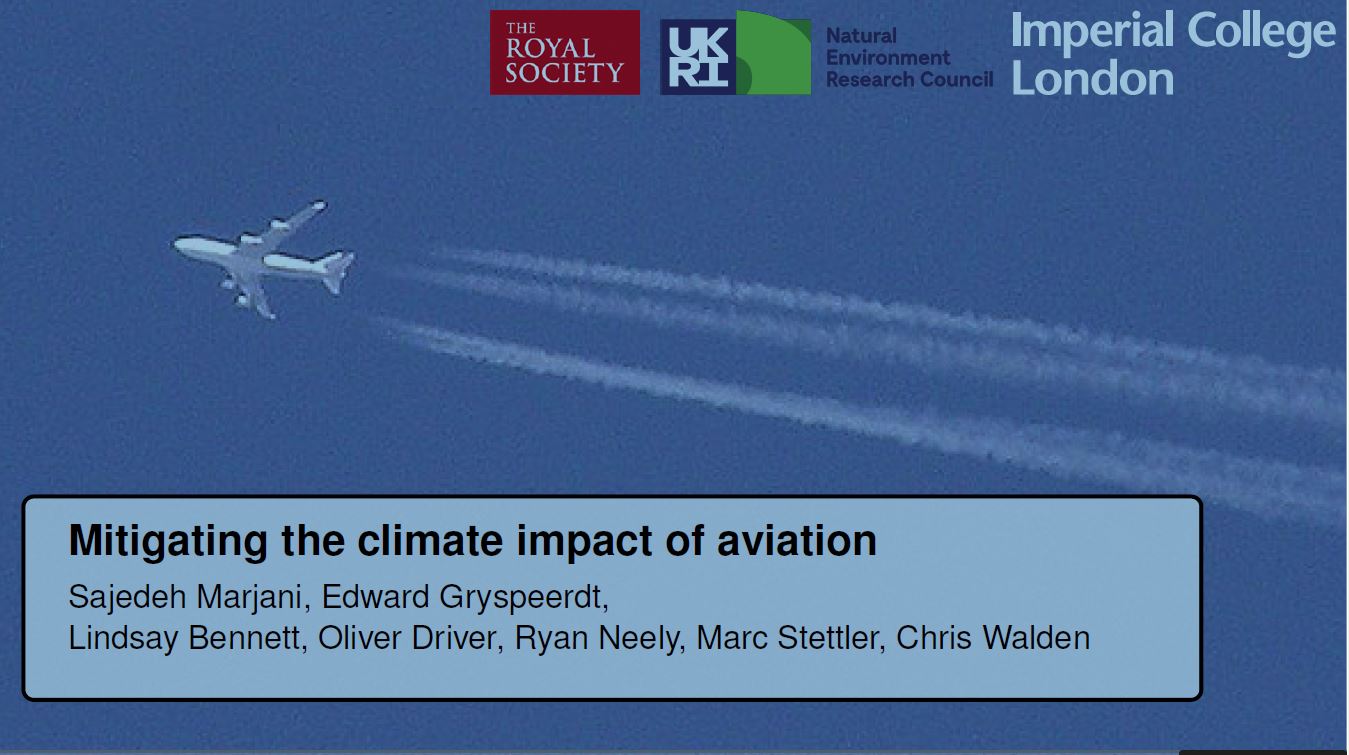
Edward Gryspeerdt
Mitigating the climate impact of avaition
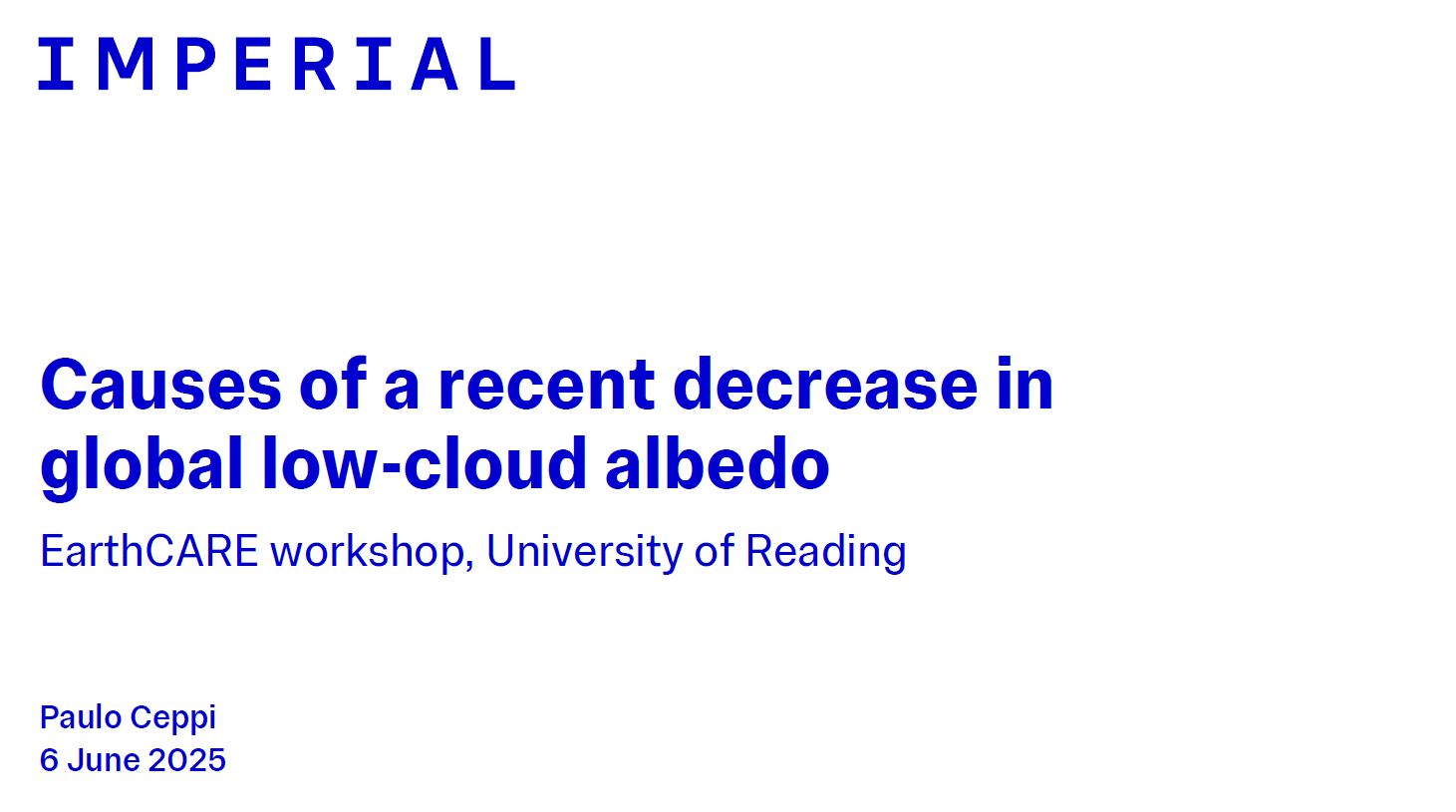
Paulo Ceppi
Causes of a recent decrease in global low-cloud albedo
Satellite Missions
Observation from satellite missions play a crucial role in monitoring climate change by providing comprehensive and continuous observations of Earth system components
NCEO scientists are involved with several upcoming satellite missions as Mission Advisory Group members where they have a leading or collaborative role in mission conception, developing sensor properties, system analysis, data analysis, modelling, algorithm development or validation activities.
